Is it Safe to Travel to Turkey? 4 Important Safety Tips
Informed and responsible travelers can feel confident about exploring a wide range of experiences in Turkey.
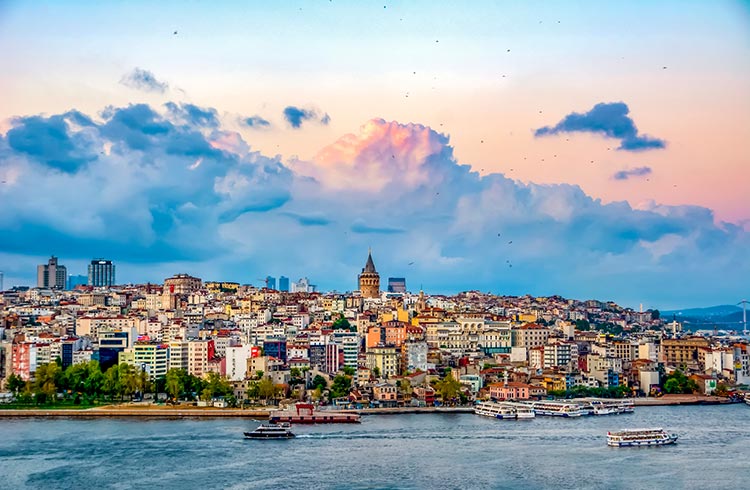 Photo © Getty Images/Darkdiamond67
Photo © Getty Images/Darkdiamond67
- Street crime in Turkey
- Potential political instability in Turkey
- Adventure travel risks in Turkey
- Wildfires in Turkey
When I traveled to Cappadocia in Turkey a few years ago, I really wanted to visit Derinkuyu, one of the region’s famous underground cave cities that were built hundreds of years ago to protect inhabitants from foreign invasions. As public transport was inconvenient for me, my hotel owner, said he could provide his services as a driver.
Even as an experienced international solo traveler, I’m still susceptible to anxiety about my safety. So, when I noticed on Google Maps we were headed down a quiet country road instead of a larger road nearby, I started to worry.
“Is this the scenic route?” I asked nervously, taking in the deserted farmlands around us. Perhaps realizing my discomfort, he hastily assured me that he was taking a shortcut due to traffic on the main road.
At the site, he waited for me at a café where while I wandered around the winding passages for a couple of hours. On the way back, he told me about the history of the area and politely asked me if I minded stopping while he prayed for a few minutes.
In hindsight, my fears were understandable but probably overblown. The fact that tourism is a major business in Turkey, citizens’ great pride in their country (as evidenced by the number of Turkish flags flying everywhere), and a culture of hospitality to guests means that travel there is generally quite safe, even for women traveling alone.
During the rest of my stay in Cappadocia, I hiked through quiet valleys with only the thrum of honeybees for company and climbed up hillsides to see ancient Christian churches carved out of the rocks. In Istanbul, I felt safe strolling solo along the Bosporus as the sun set, watching fishermen in silhouette checking their phones in between checking their lines.
However, as is the case with visiting anywhere, there are potential safety issues to be aware of in Turkey, from potential terrorist attacks to wildfires. Being alert and prepared for the risks will help ensure you take adequate steps to avoid them.
While some governments still have warnings in place about traveling to Turkey, travelers around the world clearly think it’s a safe destination, with an influx of visitors reaching record levels in 2024 and continuing to climb in 2025. Informed and responsible travelers can feel confident about exploring a wide range of experiences there, from unforgettable sights and delicious food to the warmth and generosity of the Turkish people.
These tips will guide you as you plan your trip to this beautiful, diverse, and welcoming country.
1. Street crime in Turkey
The inflation rate in Turkey has been on a rollarcoaster in recent years, especially for everyday goods such as food and fuel. Inflation leveled off some in 2025 and while there is little evidence that this economic instability is affecting crime rates, it makes even more sense for visitors to be aware of typical scams as well as to be always aware of their surroundings and valuables. Istanbul has a large security camera network, which may serve as a crime deterrent in that city.
2. Potential political instability in Turkey
Travelers are generally advised not to travel to areas of the country that border Syria due to a higher risk of armed conflict, terrorism, and civil unrest. Although there has not been another wave of deadly terrorist attacks, like one in 2016, the potential for threats in major tourist areas is still a concern, and you may notice heightened police and military presence at some sites.
In addition, you'll want be especially on guard if you visit Turkey during an election year. Protests can be frequent and violent clashes can happen. It's best to check the local media to see if any protests are planned in the area you intend to go.
3. Adventure travel risks in Turkey
Part of the fun of visiting Turkey is the many options for exciting outdoor activities such as horseback riding, scuba diving, and more. Hot air ballooning is a particular draw for visitors to Cappadocia for the spectacular views of the unusual landscapes there. While accidents are rare, it’s always a good idea to do your due diligence by reading reviews and talking to other travelers to get their recommendations for reliable operators, and then obeying all of the applicable safety guidelines for the activity.
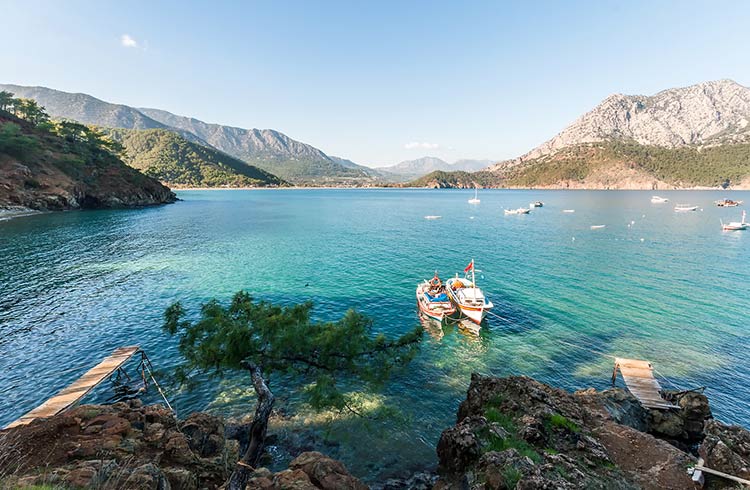
4. Wildfires in Turkey
In the last few years Turkey has suffered from some devastating wildfires, including in popular seaside areas along the Mediterranean coast. Sadly, these are becoming more common in part due to climate change. Beyond the immediate risk to personal safety, high levels of particles in the air due to smoke can cause health issues, especially among those with asthma or other lung conditions. Check the status of wildfires before your visit and consider scheduling your trip to Turkey during seasons when fires are not as common.
Related articles
Simple and flexible travel insurance
You can buy at home or while traveling, and claim online from anywhere in the world. With 150+ adventure activities covered and 24/7 emergency assistance.
Get a quote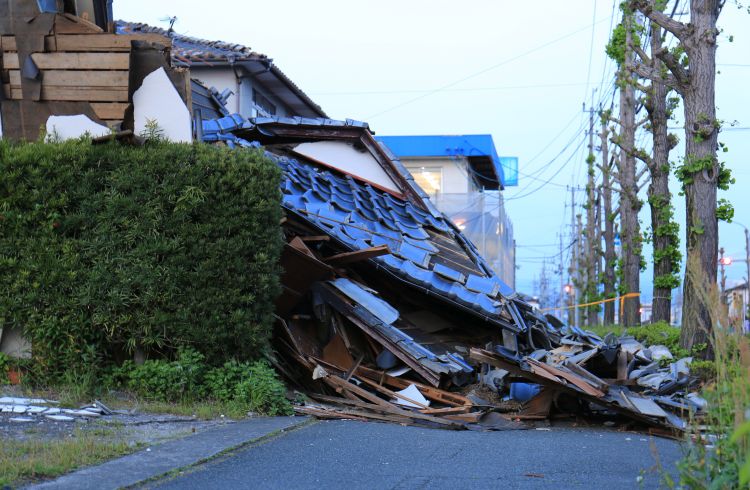
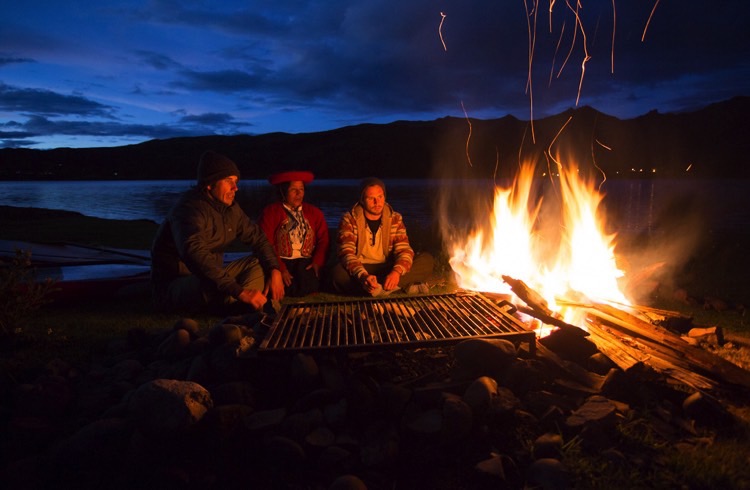
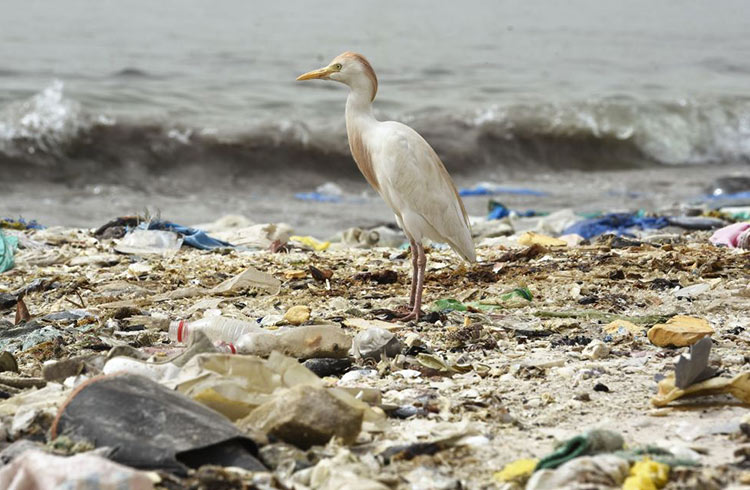

3 Comments
Turkey is safe country the information mentioned not reflect the reality in Turkey and it approached with bias and prejudged information about safety in Turkey its safer than in France and Italy, I travel every year to Istanbul and I find it very safe and nice people every where Istanbul so beautiful place to visit and see historical places beauty of nature and rich kitchens many kinds of delicious food .mediterranean sea area is beautiful summer holidays center so beautiful weather sea and nature. Try it to see with your eyes how is the real life there.
Recently had the privilege of visiting Turkey and it was wonderful. Absolutely no problems at all and the people were very kind
I traveled to Doula Cameroon. A quite dangerous city at the time. I had no problems at all and the people were very kind.
However, that didn't mean Douala wasn't a dangerous city.